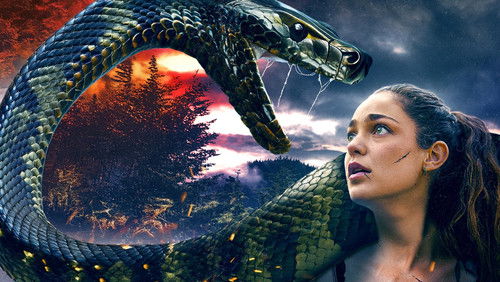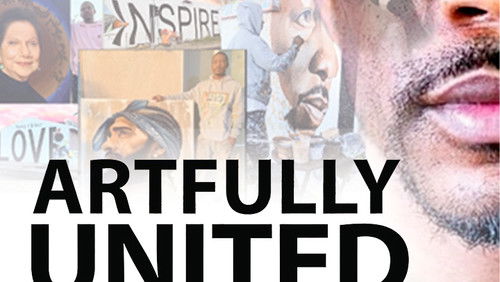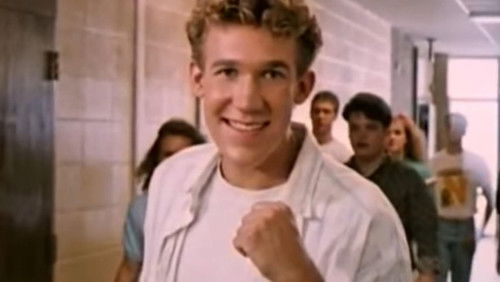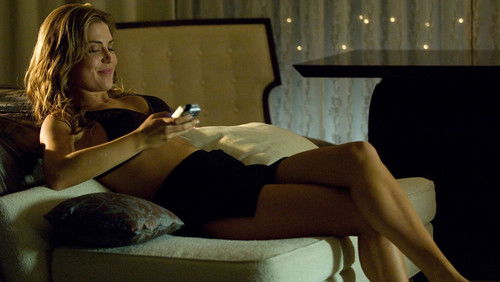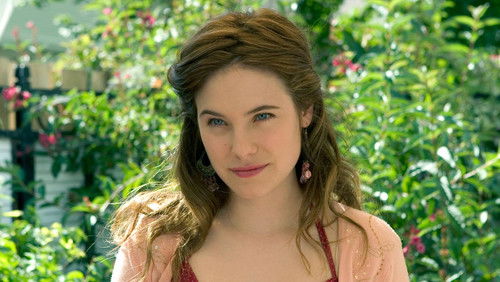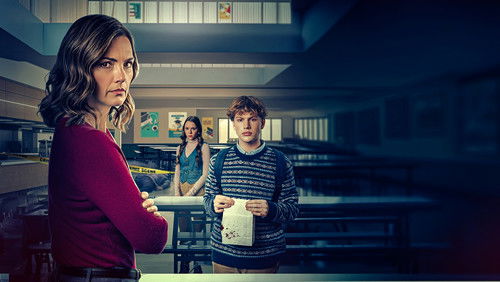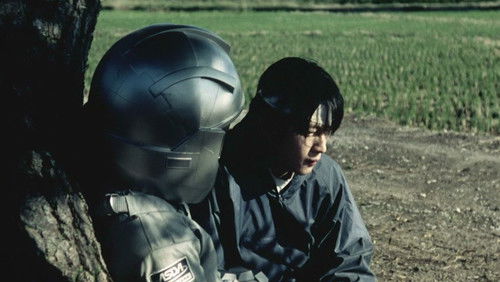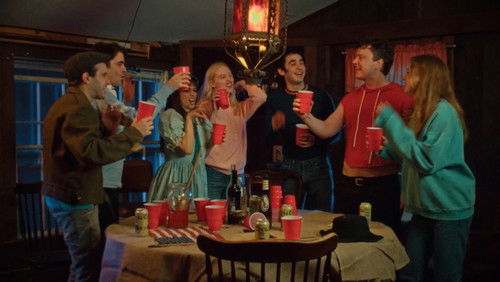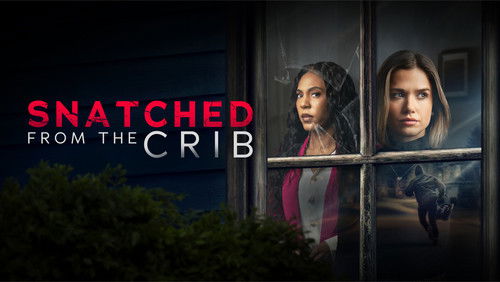Occupied City (2023)
26KOccupied City (2023). 4h 26m | PG-13
“Thereu0026#39;s been talk in some (but not all) cinephile circles over the past few years (or maybe it has been longer) about how we have so many/too many u0026quot;Longu0026quot; films that get released to theaters (and letu0026#39;s table how many make the argument while binging 12 hours of a show in a day). In full disclosure, there have been at least a few in recent memory that have made me wonder u0026quot;When will this end alreadyu0026quot; so I can sympathize the need for a break or two.u003cbr/u003eu003cbr/u003eBut I also subscribe to the notion put forward by, say, Peter Jackson (who has a mixed to positive record on this himself) that a film should be, to paraphrase it a bit, as long as it needs to be. In other words, is the filmmaker and storytellers using that time that they are asking the audience to take with them, once we go into the past 2 1/2 hour range for example, to make that commitment, with care and patience, or is it cinema as masturbation? For me, the context of the subject matter, and the context of the environment one is in, can make a difference (so like Killers of the Flower Moon, 206 minutes, film of the year… Ballad of Songbirds and Snakes at 156, not so much).u003cbr/u003eu003cbr/u003eWhat McQueen is saying I think with the length of Occupied City are two things: 1) it would be short changing the figures of history who died (and/or fought and died and/or saw justice… or not) during 1940 to 1945 when Nazi Germany occupied Amsterdam to make it like an hour and a half, and 2) if you take the accumulation of all these places and events, and how much time I will give you to think and feel about what youu0026#39;re seeing, you may have a different time than youu0026#39;re typical documentary. And, sure enough, this is not unlike the high-marker of all Holocaust documentaries, Shoah, in the sense of u0026quot;this is now, this is here, this is where it happened, and there is a sense of memory… and perhaps that memory is fading fast.u0026quot;u003cbr/u003eu003cbr/u003eAt the same time it also isnu0026#39;t like Shoah (maybe no other film could get to that just because of the timing of it all), because this is a Narrated experience, from writing via McQueenu0026#39;s wife Bianca Stitger (also a tremendous documentarian, see Three Minutes a Lengthening, the opposite of this but no less a Put You Through the Ringer of the Medium of Cinema Itself experience), and we are getting history about these people and places that used to live here in Amsterdam…. and many of these who lived also died, many shipped off to concentration camps. And because the city, as we learn in the course of this film, was not bombed as heavily as other European cities, there are places that remain (somewhat) untouched.u003cbr/u003eu003cbr/u003eOne of the fascinating things about the documentary is because of how itu0026#39;s structured – I was informed after it ended that there were altogether 130 places described and shown (which makes this an average of two minutes per place, some get more than others and some less, of course) – we get so much history about such and such a place; where the Germans did this or that and killed these people and how for example the firing squad worked; how they had their rules and curfews (more on that in a second); and how Jewish family after family after individual was more often than not dehumanized at first by Nazism and itu0026#39;s monstrous system and then shipped off to the camps.u003cbr/u003eu003cbr/u003eWe also learn about so many of the places where Resistance fighters met and did their acts of resistance both overt and covert (many Jews hidden, some kept away and some betrayed and so on), and where works of art were made into contentious pieces of controversy (ie Rembrandt). But itu0026#39;s not like any one piece of history sticks out necessarily, and thatu0026#39;s not only by design it is what makes this such an engrossing and upsetting and yet (in little ways) inspiring experience.u003cbr/u003eu003cbr/u003eThe visuals of everyday city life, sometimes with protesters (early on due to Covid, other times against fascism and then, near the end, a gigantic March against Climate Change, with some notable figures in the parade I dare not spoil here), sometimes with kids, sometimes with the elderly, sometimes with a random man in a park doing martial arts, and, other vital points, inside many of the places, and McQueen is letting us take in an experience of, well, occupation in modern day… or, during Lockdown, the lack of an occupation, with this 4:3 framed camera bringing us in like Iu0026#39;m not sure would have been the same in a wide-screen frame (oh and the drone shots at night, eat your heart out, Michael Bay, I digress). But all of these visuals with the narration does a number of captivating things because itu0026#39;s never one thing that McQueen is juxtaposing.u003cbr/u003eu003cbr/u003eWhat I mean is that there is so much that heu0026#39;s showing us, and that we are listening to, and sometimes an image and the voice over will be ironic; other times, the moment is precisely reflecting what the narrator wants us to know about this particular place (ie the one Theater, which was closed for a long time and then controversially reopened and now had a long memorial inside with many many names of those Jews who died who were kept there/hidden and then sent away), and other times itu0026#39;s more about, in a curious way, that the people not only donu0026#39;t know what such and such a place was 75/80 years prior, itu0026#39;s maybe better *not* to know.u003cbr/u003eu003cbr/u003eI donu0026#39;t mean to suggest ignorance is bliss, rather that McQueen may be suggesting with his approach and style that these people, especially the young, are here now and they have to make the present and the future what it is, and as long as they meet what the moment is there is a chance for humanity. Maybe. Or thereu0026#39;s time to dance.u003cbr/u003eu003cbr/u003eThereu0026#39;s so much to Occupied City, I donu0026#39;t know if I scratched the surface in describing why this is such a special cinematic experience (and it was shot in 35mm and since it was given a Theatrical release, however limited, itu0026#39;s meant to be seen this way in theory). I also get if it may drag on for some or feel too u0026quot;long.u0026quot; To me, the length is the point, and even when my mind started to drift a little or when, frankly, what McQueen shows us with his camera and the real life subjects is more absorbing than what we are listening to, thatu0026#39;s…. good.u003cbr/u003eu003cbr/u003eI hate using this term sometimes but it is a Meditation as much as a History of a period in many places that all make up one place, and meditating for this level of time is what we need in a world where everything is in bite sized chunks and information comes so quickly. Itu0026#39;s one of those times subject, context, form, and history all converge.u003cbr/u003eu003cbr/u003eA tremendous work of art and its hard not to tear up at the end when we see that Torah/Bar Mitvah ceremony.”
